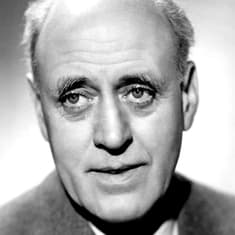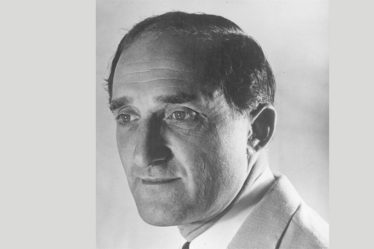
WARNING: This Article May Contain Spoilers
Born: 16th April 1921
Died: 28th March 2004 (aged 82)
Born Peter Alexander Freiherr von Ustinov in Belsize Park, London, to Jona Freiherr von Ustinov, a German diplomat and journalist (who worked for MI5 during the German Reich), and Nadezhda Leontievna Benois, an artist and theatrical designer. His heritage was very varied French, Italian, Russian, German, Polish, Ethiopian, and Jewish. He attended Westminster School and in his late teens trained to be an actor at the London Theatre Studio. He made his London stage debut at the age of 17 at the Players’ Theatre. During the Second World War he was appointed as David Niven’s ‘batman’ (soldier or airman assigned to a commissioned officer as a personal servant) and at the same time he was writing a screen play, alongside Eric Ambler, that would star Niven as the lead. His debut on the big screen came in a 1942 Will Hay film called The Goose Steps Out. After the war, he continued to write and act, and he also directed. His American debut was in Quo Vadis for which he received an Oscar nomination
I always think the strength of an actor is how they can hold the viewers’ attention when they share the screen and in Spartacus Peter Ustinov holds it very well among a very strong cast, which includes the likes of Charles Laughton and Sir Laurence Olivier. His Batiatus is a light role, not comedic (although in other hands could easily be played that way) but one that just lightens the mood every now and then. Batiatus is the owner of the Gladiator school and although a gentle man, he doesn’t want his ‘students’ to fight to the death in his school, there is a slight cruel side to him but he is more conniving than anything else he definitely has a heart and Ustinov’s portrayal really makes me feel for his character. From an epic to a role which is effectively a cameo and for a cameo Ustinov definitely makes an impact as Chris O’Donnell’s Grandad in The Bachelor. He is grouchy and fed up with his grandson for not passing on his “genetic material” (although I think grouchy is a permanent state) even Jimmy describes him as “difficult” at the funeral! But I have to give it to the writer, Steve Cohen, for the beautiful way he wrote Grandad that Ustinov could portray it so wonderfully with such a small time on screen. What I love about doing this blog is that I get to see films that either I’ve never seen before or ones I may never have chosen to see but enjoyed – Luther falls into the latter. Before I go on though I must point out this is not the film based on Idris Elba’s TV character of the same name it is in fact a small German film about the life of Martin Luther and what led to the Protestant Reformation. It was also Ustinov last big screen performance. What I love about this film (apart from actually learning something) is that Ustinov chose to do it at the age 82 and after such a long, and varied, career in the mainstream. He plays Frederick the Wise with a very mischievous glint in his eye – he knows how to play the game and enjoys doing so – and Ustinov’s portrayal shows this. I’m not one for epics, I’ve already sat through Spartacus, but Peter Ustinov makes Quo Vadis worth watching. His Nero is childish and petulant yet there is the undertone of the ‘madness’ that befell Nero himself – the man who slept with, and murdered, his mother and wife and (supposedly) burnt Rome to the ground. I doubt this film is a true representation of what happened but it does take the term ‘Fiddled while Rome Burned’ quite literally as he, in the film, set Rome alight to help his creativity! What can I say about Ustinov’s role in Logan’s Run? Firstly he is credited as Old Man (that is normally a red flag that says I am watching a film for an actor with a very small role) yet he is credited in the opening credits, which means he is either a very big name for the film or his role is bigger than his character name implies! I guess it’s a bit of both – apart from our leads, Ustinov is a very big name and yes he is in it for more time than you’d expect; you just have to sit through most of the film before he appears which wasn’t a problem – Logan’s Run is quite a good film (not that I fully understood the premise) but Ustinov brings a bit of humour to, what I feel, is a bit of a lacklustre script.
I’ve already said how writing these articles has had me watching films I’ve never seen before or may never had chosen to watch but it also allows me to watch films that I love and maybe haven’t seen for many years. As soon as I knew I would be writing an article on Sir Peter Ustinov it was obvious to me that my favourite character of his would have to be his portrayal of Hercule Poirot. I’ve read a couple of Agatha Christie’s but never really got into them, but I love Poirot and most portrayals of him but its Ustinov’s that will always be my favourite – he may not fit that description that Christie herself wrote but who cares? Theatrical licence and all that! The thing that Ustinov does, that I love, is that he is an unassuming character, slightly bumbling, but as soon as he is in detective mode he shines. He plays him with intelligence and humour and I adore all of his films.
As an actor Sir Peter Ustinov was awarded several times over by many film societies – he won two out of four Oscar nominations – both wins were in the Best Supporting Actor category for Spartacus and Topkapi. In fact, Ustinov is the only actor to win an Oscar for a Stanly Kubrick film (Spartacus) – now considering Kubrick directed about 15 films that is no mean feat! As well as being a talented theatrical writer, actor and director Sir Peter Ustinov was also a talented writer; writing non-fiction, autobiographical and fiction. He also appeared on several records, mainly narrating alongside classical pieces, including an adaption of Der Bürger als Edelmann, which incorporated Richard Strauss’ music but he also recorded Grand Prix of Gibraltar and other comedy pieces which showcased his vocal range and soundeffects. He spoke English, French, Spanish, Italian, German and Russian fluently, as well as some Turkish and modern Greek and had a tendency to dub his own work for foreign audiences!
Knighted by the Queen in 1990 (15 years after being awarded a CBE) Sir Peter Ustinov has served as president of the World Federalist Movement (WFM) for 13 years. He was a goodwill ambassador for UNICEF and was elected as the first rector of the University of Dundee (a position he held for three consecutive terms). He was a secular humanist an supported the British Humanist Society, he was also a member of the English PEN, a non-governmental organisation that advocated for human rights. In 1984 Ustinov was in the grounds of Indira Gandhi’s home waiting to interview her when she was assassinated. He described the whole situation as “quite unreal”.
Sir Peter was married three times: first to Isolde Denham it lasted ten years and they had a daughter, Tamara; his second marriage, to Suzanne Cloutier, lasted 17 years and produced three children, Pavla, Andrea and Igor, his only son. A year after his last divorce he married Helene du Lau d’Allemans, a journalist – this marriage lasted until his death. Ustinov died of heart failure on 28th March 2004. Of his four children Tamara and Pavla followed their father into the business both Andrea and Igor have found their own paths, Igor being the director of the Ustinov foundation and a sculptor. Sir Peter once said “I am an international citizen conceived in Russia, born in England, working in Hollywood, living in Switzerland, and touring the World”


